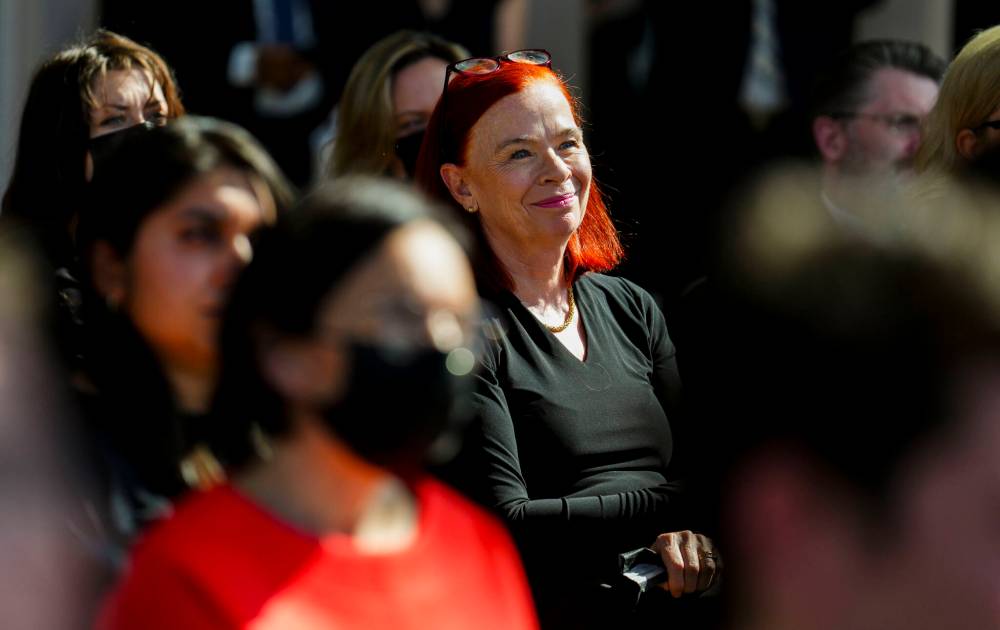CBC head’s response to criticism tone-deaf
Advertisement
Read this article for free:
or
Already have an account? Log in here »
To continue reading, please subscribe:
Monthly Digital Subscription
$0 for the first 4 weeks*
- Enjoy unlimited reading on winnipegfreepress.com
- Read the E-Edition, our digital replica newspaper
- Access News Break, our award-winning app
- Play interactive puzzles
*No charge for 4 weeks then price increases to the regular rate of $19.95 plus GST every four weeks. Offer available to new and qualified returning subscribers only. Cancel any time.
Monthly Digital Subscription
$4.99/week*
- Enjoy unlimited reading on winnipegfreepress.com
- Read the E-Edition, our digital replica newspaper
- Access News Break, our award-winning app
- Play interactive puzzles
*Billed as $19.95 plus GST every four weeks. Cancel any time.
To continue reading, please subscribe:
Add Free Press access to your Brandon Sun subscription for only an additional
$1 for the first 4 weeks*
*Your next subscription payment will increase by $1.00 and you will be charged $16.99 plus GST for four weeks. After four weeks, your payment will increase to $23.99 plus GST every four weeks.
Read unlimited articles for free today:
or
Already have an account? Log in here »
Hey there, time traveller!
This article was published 13/02/2023 (1063 days ago), so information in it may no longer be current.
Under normal circumstances, being president of a complex and occasionally controversial organization such as the Canadian Broadcasting Corp. requires an individual to have many talents. But none as important as the ability to read the room.
Lamentably, current CBC president Catherine Tait does not seem to possess that talent.
In a recent interview with The Globe and Mail, Ms. Tait was asked to respond to criticisms from federal Conservative Leader Pierre Poilievre, who has accused the national broadcaster of being a partisan ally of the current Liberal government. Mr. Poilievre has launched a campaign to “defund the CBC,” effectively stripping it of its $1.24-billion taxpayer subsidy.

Sean Kilpatrick
Catherine Tait, president and CEO of CBC/Radio-Canada
Ms. Tait’s response to the Tory leader’s attacks, and the revival of a defund-the-CBC campaign that has been raging in conservative political circles for decades, was quite tone-deaf.
As the head of an organization that counts journalism among its functions, Ms. Tait should know it is not her place to comment directly on what any politician or party says or thinks about the CBC. She should defend her organization, but she should not become a player in a political debate. Doing so only reinforces the idea the CBC has partisan political biases.
However, the biggest mistake the CBC head made was to muse openly about a future where the CBC abandons traditional radio and television broadcasting and goes totally digital and online.
And then, when asked about the lofty taxpayer subsidy the CBC receives, Ms. Tait claimed funding has actually declined. She argued that in addition to traditional “linear” television and radio broadcasting, the CBC now offers a free view-on-demand streaming service, streaming radio shows and digital news. “So we have completely tripled our output, yet we’re doing it with less money.”
A leader who could read the room would not have said any of those things.
Ms. Tait should have known a common complaint about the CBC — from politicians, the broadcasting and journalism industries, and even from some taxpayers — is that it has strayed too far outside its original mandate by expanding its digital footprint.
In that context, arguing that your budget is reasonable based on the fact you’re producing content on platforms some people argue are inappropriate is the unadulterated definition of tone-deaf.
Still, even if Ms. Tait does not recognize the flaw in her arguments, she could not ignore the concerns being expressed by the CBC’s biggest citizen fans.
Friends (formerly Friends of Canadian Broadcasting), a not-for-profit advocacy group that has lobbied for decades to maintain a taxpayer-funded national broadcaster, sent out emails to its supporters urging the CBC to focus on its mandate and not abandon its core audience, many of whom may not be able to access online content because of an absence of broadband internet service.
The position taken by Friends should be enough to convince Ms. Tait that comments about going fully digital, and her hollow defence of the CBC budget, do not speak to a leader or an organization burdened with self-awareness.
The CBC can easily survive obliviousness like this when there is CBC-friendly governing party in power. If that changes, however, the corporation may find that the self-awareness it lacks now will be forced upon it by a new government. With dire consequences.








